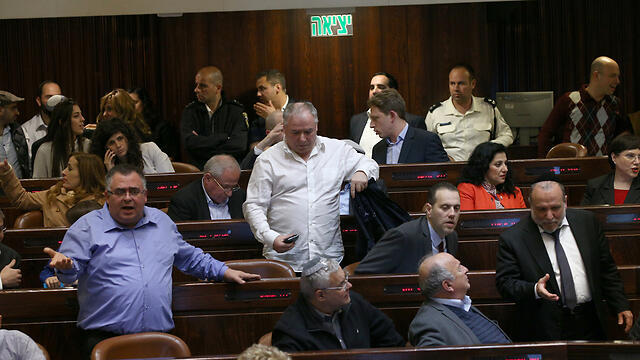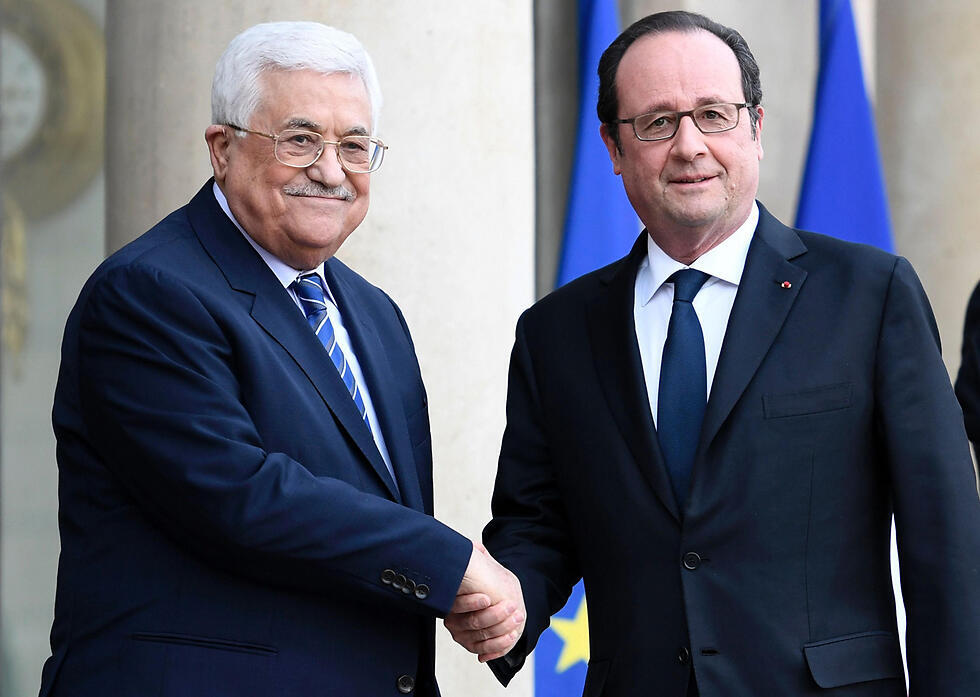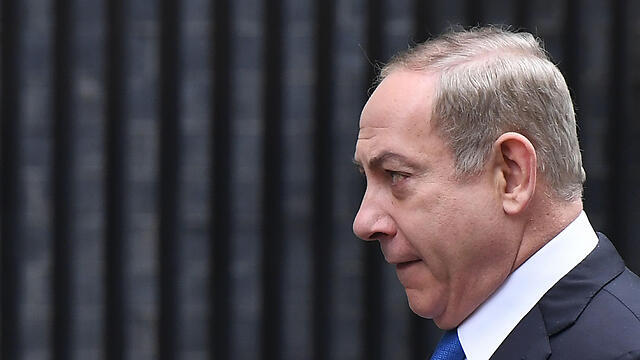A stream of statements condemning Israel's adoption of the Regulation Law ,which will retroactively legalize thousands of West Bank settlement homes built on private Palestinian land, continued to flow throughout Tueasday, with UN Secretary-General António Guterres's bureau expressing its own anger in the evening.
"The Secretary-General deeply regrets the adoption of the so called "Regularization bill" on 6 February by the Knesset. This bill is in contravention of international law and will have far reaching legal consequences for Israel. It reportedly provides immunity to settlements and outposts in the occupied West Bank that were built on privately-owned Palestinian land," the statement read.
- "The Secretary-General insists on the need to avoid any actions that would derail the two-state solution. All core issues should be resolved between the parties through direct negotiations on the basis of relevant Security Council resolutions and mutual agreements. The United Nations stands ready to support this process."
Eariler, a Palestinian Cabinet minister on Tuesday called on the international community to punish Israel for a contentious new law, just hours after the Knesset adopted the law.
The explosive law, approved by lawmakers late on Monday, is the latest in a series of pro-settler steps taken by Israel's government since the election of US President Donald Trump. It is expected to trigger international outrage and a flurry of lawsuits against the measure.
By late afternoon Tuesday, French President François Hollande called on the Israeli government to repeal the law, warning that it marked the beginning of annexation.
Similarly, Palestinian Authority President Mahmoud Abbas delivered a statement urging the international community to oppose the law.
The ramp-up of settlements "would open the way to the annexation of occupied territories", Hollande said at news conference after meeting Palestinian President Mahmoud Abbas.
"I think that Israel and its government could revise this text," Hollande added.
"That bill is contrary to international law," Abbas said in the joint statement with Hollande in Paris. "This is an aggression against our people that we will be opposing in international organizations".
"What we want is peace... but what Israel does is to work toward one state based on apartheid," Abbas said.
6 View gallery


Knesset members arguing during the reading for the Regulation Bill (Photo: Ohad Zwigenberg)
(צילום: אוהד צויגנברג)
"Nobody can legalize the theft of the Palestinian lands. Building settlements is a crime, building settlements is against all international laws," said Palestinian Tourism and Antiquities Minister Rula Maayaa. "I think it is time now for the international community to act concretely to stop the Israelis from these crimes."
According to the law, Palestinian landowners would be compensated either with money or alternative land, even if they did not agree to give up their property. Critics say the legislation enshrines into law the theft of Palestinian land, and it is expected to be challenged in Israel's Supreme Court.
The vote passed 60-52 in the 120-member Knesset. The raucous debate saw opposition lawmakers shouting from their seats at governing coalition lawmakers speaking in favor of the vote. Some spectators in visitors' seats raised a black cloth in apparent protest.
Israeli Prime Minister Benjamin Netanyahu had voiced misgivings about the law in the lead-up to the vote, reportedly expressing concern that it could trigger international censure and saying he wanted to coordinate with the Trump administration before moving ahead on a vote.
He told reporters on a trip to London thathe had updated Washington and was ready to move ahead with the law. Netanyahu was on his way back from the trip and was not present for the vote.
The White House's immediate response was to refer to its statement last week that said the construction of new settlements "may not be helpful" in achieving an Israeli-Palestinian peace. The State Department later said "the Trump administration will withhold comment on the legislation until the relevant court ruling."
David Harris, CEO of AJC, the global Jewish advocacy organization, said that "Israel's High Court can and should reverse this misguided legislation" ahead of Netanyahu's meeting with Trump in February.
Critics have also warned the bill could drag Israel into a legal battle at the International Criminal Court at The Hague, Netherlands, which is already pursuing a preliminary examination into settlements.
Among the law's problematic elements is that the West Bank is not sovereign Israeli territory and that Palestinians who live there are not citizens and do not have the right to vote for the government that imposed the law on them.
Nabil Abu Rdeneh, a spokesman for Palestinian President Mahmoud Abbas, called the law "unacceptable" and urged the international community to act immediately. "This is an escalation that would only lead to more instability and chaos," he said.
Netanyahu faced intense pressure from within his nationalist coalition, especially from the pro-settler Bayit Yehudi party, to press ahead with the vote following the court-ordered evacuation last week of the illegal Amona outpost found to have been built on private Palestinian land.
Naftali Bennett, head of Bayit Yehudi, told Army Radio on Tuesday that the goal of the bill was create the same conditions in the settlements as in Israel proper.
"At the end of the day, behind all the talk there is a simple question: What do we want for the future of Israel?" he said.
World leaders and organizations lash out at Israel
British Minister for the Middle East Tobias Ellwood said: "It is of great concern that the bill paves the way for significant growth in settlements deep in the West Bank, threatening the viability of the two-state solution. As a longstanding friend of Israel, I condemn the passing of the Land Regularisation Bill by the Knesset, which damages Israel’s standing with its international partners.
"We reiterate our support for a two-state solution leading to a secure Israel that is safe from terrorism, and a contiguous, viable and sovereign Palestinian state."
French Minister of Foreign Affairs, Jean-Marc Ayrault, said the passage of the new law was likely to further aggravate tensions in the region and called on Israel to "respect its international obligations and repeal the law."
The UN also weighed in on the Regulation Bill with the UN Mideast envoy saying the law "crossed a very thick red line."
Nickolay Mladenov, the UN's coordinator for the Middle East peace process, said the legislation "opens the floodgates to the potential annexation of the West Bank. If Israel moves to solidify its control over the area, it would imperil the internationally backed idea of establishing a Palestinian state alongside Israel as part of a negotiated peace deal," he said.
The passage of the bill also cast a cloud over the visit of Turkish Tourism Minister, Nabi Avci, who said he hoped the High Court would strike the bill down. "I think, I hope, that on this issue, the high court will make the right decision, a decision in accordance with international law, a decision in accordance with United Nations decisions," he said.
First published: 14:30, 02.07.17






